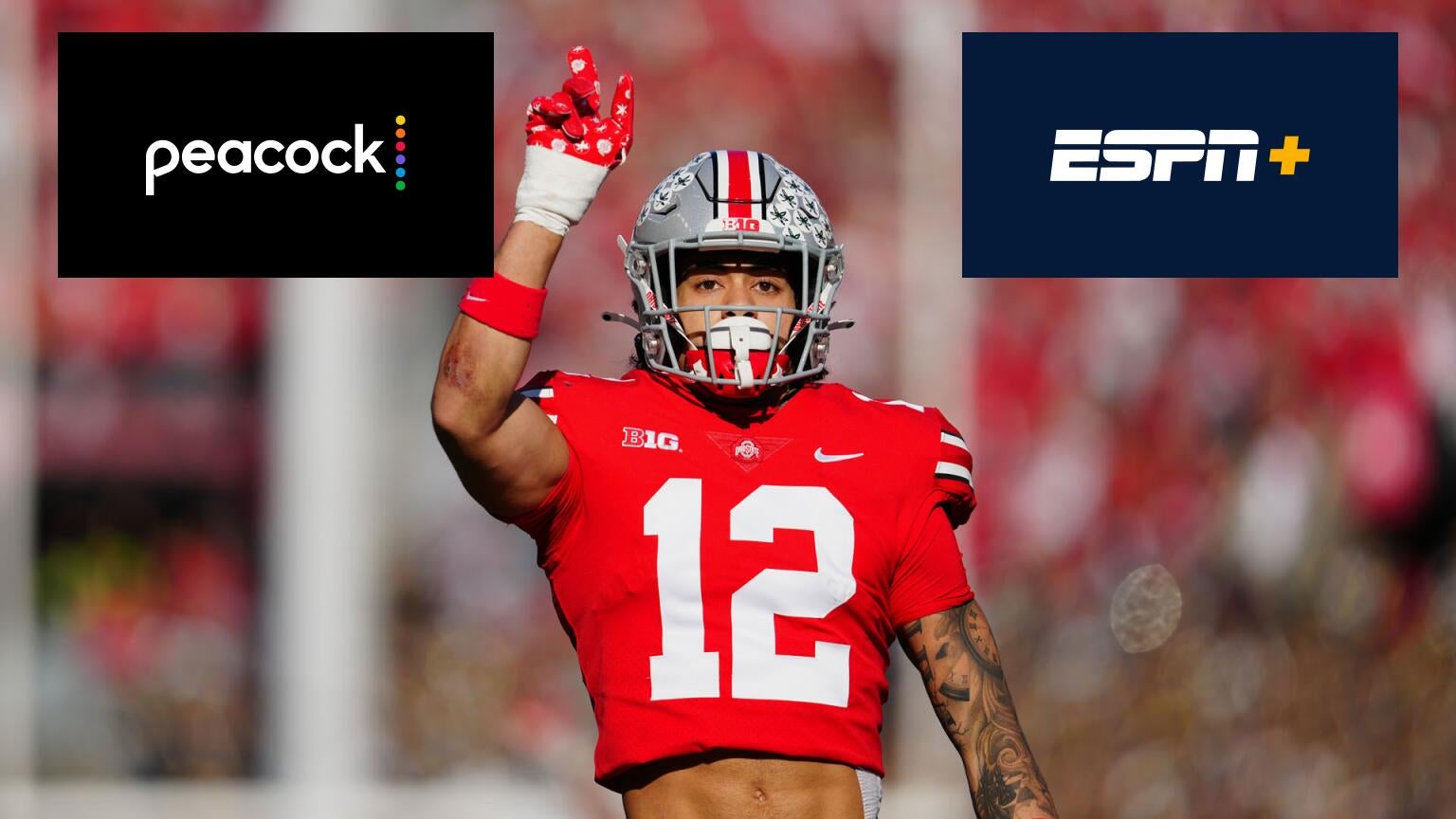Ohio Legislator Aims to Make Streaming-Exclusive Football Games Illegal
Ohio Legislator Aims to Make Streaming-Exclusive Football Games Illegal

On Saturday, Oct. 14, the Ohio State Buckeyes beat the Purdue Boilermakers 41-7 in what was OSU’s first streaming-exclusive game as part of the Big Ten's new $7+ billion media rights deal with CBS, Fox, and NBC. As part of the record-breaking agreement, every conference institution will have one game on NBCUniversal’s streaming service Peacock every season, and Saturday’s game in West Lafayette, Indiana was the Buckeyes’. However, the broadcasting move angered many, including a local lawmaker.
- Following Ohio State’s first game on Peacock, an Ohio state senator wants to make it illegal in the future.
- Senator DeMora wants to block Ohio public universities from airing only on streaming services.
- The lawmaker wants students to at least be provided a free login.
According to the Columbus Dispatch, Ohio state senator Bill DeMora (D-Columbus) said that he plans on introducing a bill that would prevent Ohio public universities from airing football games exclusively on streaming services. While Ohio State’s game on Peacock is the contest that sparked the lawmaker’s concern, other conferences have similar deals with games airing exclusively on streaming as well. The Akron Zips and Bowling Green Falcons — two Ohio public institutions — will face off on ESPN+ on Saturday, Oct. 21, as will Kent State when they take on Buffalo the same afternoon. All three of those Ohio squads are part of the Mid-American Conference (MAC).
While the minimum fee for most people to subscribe to Peacock for one month is $5.99 — the service no longer has a free trial period — students can get the ad-supported version of the service for just $1.99. However, that is not good enough for DeMora who reportedly told college sports business reporter Matt Brown that these games should at least be free for students.
I just got off the phone with this senator and hope to have a story up in a day or two. Senator Bill DeMora was adamant that “students should not have to pay yet another fee to watch their classmates.” If nothing else, “they ought to get a password to watch for free.” https://t.co/Frdb7am9Po
— Matt Brown (@MattBrownEP) October 16, 2023
While there are no details about DeMora’s proposal available at this point, the main conceit is that since public institutions receive funding from the state, they should be required to provide a local viewing alternative. While the Big Ten has moved away from airing games on ESPN, select games are still broadcast on cable channel the Big Ten Network with no local alternative provided. In addition to BTN and Peacock, the rest of Ohio State and the Big Ten’s games air on the three broadcast networks that are available for free over the air.
Prime Video, which is the exclusive home for the NFL’s “Thursday Night Football” does make its broadcasts available on network stations in the home media markets of the teams playing, so there is some precedent for a move like this.
Adding to DeMora’s frustration is the fact that it is essentially cost-prohibitive for bars and restaurants to show streaming exclusive games. While businesses that welcome sports fans to watch games generally have a commercial license to broadcast games via cable or satellite — most often via DIRECTV — the move to streaming has not yet caught up to the commercial needs of brick-and-mortar establishments. While Peacock does have a wide range of sports offerings, with only one exclusive college football game per week, the reported $3,600 fee to broadcast the game makes it difficult for most businesses to justify the expense.
While NBCU and other companies that air streaming-exclusive games will likely eventually come up with a cost-effective way for sports bars to show games, this is not a new problem. It caused a significant amount of consternation last year when Max — then HBO Max — began airing exclusive United States Men’s and Women’s National Team soccer matches.
“I’ve heard from a lot of folks that are pissed off that the local bar doesn’t have the game or they have to spend X amount of money to buy one football game on this Peacock network so they can watch Ohio State,” DeMora said.
The state senator’s efforts currently appear to be focused on football games, but given that the Big Ten also plans to air Peacock-exclusive men's and women's basketball games starting next month, they could be included in an eventual bill as well. Currently, the Ohio State men’s and women’s teams are scheduled to have 11 combined games broadcast only on the streaming service this season. The men’s team will also have three games — including its season opener against Oakland airing exclusively on B1G+ — Big Ten Network’s streaming service — while the women’s team has nine games on the streamer.
It remains to be seen if DeMora’s proposed bill will ever become law, as it will likely be opposed by Ohio’s public universities, their respective conferences, and the major media companies pumping millions of dollars into the athletic programs covered by the respective deals.
-
Peacock
Peacock is a subscription video streaming service from NBCUniversal that includes original shows, blockbuster movies, and classic television series. Peacock is home to “Yellowstone,” and “The Office,” as well as original hits like “Poker Face” and “Bel-Air.” You can also watch live sports including NFL, MLB, WWE, Olympics, Premier League, NASCAR, French Open, College Football and Basketball, and PGA Tour. Premium Plus subscribers can stream their local NBC feed in all 210 markets.
-
ESPN+
ESPN+ is a live TV streaming service that gives access to thousands of live sporting events including NFL, MLB, NHL, UFC, College Football, F1, Bundesliga, PGA Tour, La Liga, and more. Users can see sports documentaries and select archived events. Subscribers can access exclusive articles from top ESPN insiders.


